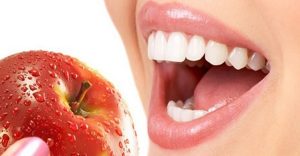Ever lost hope of chewing that favorite meal (like meat) of yours? Worry no further as these 7 simple tricks I am about to show you will make you get full control of your damage teeth back.
The answer to many questions like, is it possible to restore enamel and heal cavities? normally turns down our gizzard and over our minds whenever we have any tooth problem. But as I promised, the answer is a potential here, just keep on reading below;
 |
| Regenerate Magazine |
7 Simple steps to restore enamel naturally with nutrition:
1 – Eliminate refined sugar and grains: According to a study in the British Medical Journal, cavities and tooth decay can potentially be reversed with nutrition. Participants in this study who ate a grain free diet supplemented with vitamin D showed a dramatic healing in their cavities. The group of participants who ate a diet high in grains, however, continued to form cavities.
Not only does the starch content of grains feed the acid-producing bacteria, grains house a compound called phytic acid. Phytic acid is an anti-nutrient which blocks the absorption of minerals including calcium. Traditional cultures across the globe inherently knew how to better access the minerals in grains by soaking and fermenting the grains. Fermented grain products such as old-fashioned sourdough can be easier to digest, but I recommend a completely grain free lifestyle to address tooth decay.
2 – Emphasize Fat-Soluble Vitamins
3 – Consume Enough Minerals: We need to provide the body with the raw ingredients – Calcium and Phosphorus – for remineralization.
4 – Support Nutrient Assimilation: We are not what we eat. We are the nutrients our body absorbs.Compromised digestion inhibits the absorption of Calcium and Phosphorous from our food. If we can’t absorb these minerals, our teeth can’t use them for remineralization.
5- Stop Snacking: Snacking not only takes a toll on the digestive system (those organs demand a break for rejuvenation), a constant intake of food may impede the remineralization process. Snacking on carbohydrate-rich foods gives those mouth bacteria constant fuel and may prevent saliva from restoring the mouth pH.
Our evolutionary roots indicate that we are designed to eat larger quantities of food, less frequently, and in social mealtime settings. If you find yourself snacking between meals, it likely indicates the following imbalances:
A daily blood-sugar-rollercoaster due to the consumption of high glycemic foods.Inadequate intake of nutrients, particularly healthy fats, at meals.Deeply-ingrained lifestyle patterns, such as social snacking in the workplace or boredom snacking in front of the TV.
6 – Practice Oil Pulling.
7 – Avoid Fluoride in Dental Care and Toothpaste: Fluoride is a neurotoxin. It does not belong in your toothpaste, your mouth, or your water supply.
If you love a friend, then share…